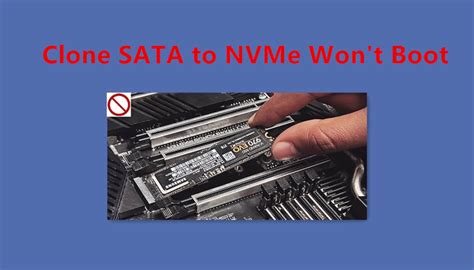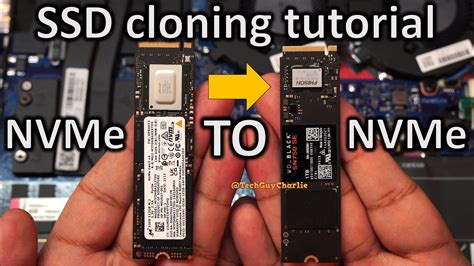acronis cloned drive won't boot Install onto an SSD using a bootable Windows 10 32-bit (1903) USB installer. Reboot w/target drive to make sure it works. Power down. Clone previously configured Win10 installation from old HDD to SSD in external USB docks using . $27.72
0 · cloned nvme drive won't boot
1 · cloned nvme drive not working
2 · acronis true image won't boot
3 · acronis cloned ssd not booting
4 · acronis clone troubleshooting
5 · acronis clone not booting
$55.99
It is recommended to put the new drive in the laptop first, and connect the old drive via USB. Otherwise you will may not be able to boot from the new cloned drive, as Acronis True Image will apply a bootability fix to the new disk and adjust the boot settings of the target drive . I used acronis true image that came with my kingston a2000 nvme drive. I used it to clone, using the automatic mode, my crucial mx500 boot drive. The clone operation was . It is recommended to put the new drive in the laptop first, and connect the old drive via USB. Otherwise you will may not be able to boot from the new cloned drive, as Acronis True Image will apply a bootability fix to the new disk and adjust the boot settings of the target drive to boot from USB. If the new disk is inside the laptop, the boot . I bought recently an SSD hard drive (Crucial MX500 1TB 3D NAND SATA 2.5-inch 7mm (with 9.5mm adapter) Internal SSD CT1000MX500SSD1). My previous one was a ST3500413AS ATA Seagate Barracuda 512 GB HDD from the year 2012 or earlier. I cloned the drive using software provided by the SSD card (Acronis True Image). It took 14 hours to finish.
Install onto an SSD using a bootable Windows 10 32-bit (1903) USB installer. Reboot w/target drive to make sure it works. Power down. Clone previously configured Win10 installation from old HDD to SSD in external USB docks using . Hi, I used acronis true image that came with my kingston a2000 nvme drive. I used it to clone, using the automatic mode, my crucial mx500 boot drive. The clone operation was successful and my computer shutdown. I took out all the drives except the nvme but it says "no bootable device found" Why.
Run the bcdboot command in one of the following ways: a) If your system has only one drive/disk, run: bcdboot c:\windows. b) Otherwise, figure out the drive letter where Windows is installed on. The bootrec /scanos command should help with that. For example, if Windows is detected on "D:\Windows", then run: Disconnect ALL drives except for the new SSD. This is to allow the system to try to boot from ONLY the SSD. Swap the SATA cables around so that the new drive is connected to the same SATA port as the old drive. Power up, and verify the .

The "Windows Boot Manager" option text comes from the UEFI boot variable, which is stored in the BIOS settings NVRAM, and not on the disk at all. So cloning the disk cannot clone it. Fortunately, Windows installs a second copy of its UEFI boot manager in the standard removable media/fallback path on the EFI System Partition: \EFI\boot\bootx64.efi. I booted the system from a USB flash drive containing the Acronis Bootable Media ISO image downloaded from Acronis.com (and burned to the flash drive using Rufus). The computer booted right up from the flash drive. The Acronis app recognized both the SSD (now installed internally) and the HDD (now in a USB enclosure). The two NVME M.2 drives on my PC are visible when I boot up from Windows normally, just not from the Acronis Rescue Media USB drive. The two drives being visible from my PC I naturally could just use the regular Clone Disk utility but since it has that critical warning placed in the documentation I am pausing for a bit in my cloning endeavors .
It is recommended to put the new drive in the laptop first, and connect the old drive via USB. Otherwise you will may not be able to boot from the new cloned drive, as Acronis True Image will apply a bootability fix to the new disk and adjust the boot settings of the target drive to boot from USB. If the new disk is inside the laptop, the boot . It is recommended to put the new drive in the laptop first, and connect the old drive via USB. Otherwise you will may not be able to boot from the new cloned drive, as Acronis True Image will apply a bootability fix to the new disk and adjust the boot settings of the target drive to boot from USB. If the new disk is inside the laptop, the boot . I bought recently an SSD hard drive (Crucial MX500 1TB 3D NAND SATA 2.5-inch 7mm (with 9.5mm adapter) Internal SSD CT1000MX500SSD1). My previous one was a ST3500413AS ATA Seagate Barracuda 512 GB HDD from the year 2012 or earlier. I cloned the drive using software provided by the SSD card (Acronis True Image). It took 14 hours to finish.
Install onto an SSD using a bootable Windows 10 32-bit (1903) USB installer. Reboot w/target drive to make sure it works. Power down. Clone previously configured Win10 installation from old HDD to SSD in external USB docks using . Hi, I used acronis true image that came with my kingston a2000 nvme drive. I used it to clone, using the automatic mode, my crucial mx500 boot drive. The clone operation was successful and my computer shutdown. I took out all the drives except the nvme but it says "no bootable device found" Why.

Run the bcdboot command in one of the following ways: a) If your system has only one drive/disk, run: bcdboot c:\windows. b) Otherwise, figure out the drive letter where Windows is installed on. The bootrec /scanos command should help with that. For example, if Windows is detected on "D:\Windows", then run:
Disconnect ALL drives except for the new SSD. This is to allow the system to try to boot from ONLY the SSD. Swap the SATA cables around so that the new drive is connected to the same SATA port as the old drive. Power up, and verify the . The "Windows Boot Manager" option text comes from the UEFI boot variable, which is stored in the BIOS settings NVRAM, and not on the disk at all. So cloning the disk cannot clone it. Fortunately, Windows installs a second copy of its UEFI boot manager in the standard removable media/fallback path on the EFI System Partition: \EFI\boot\bootx64.efi. I booted the system from a USB flash drive containing the Acronis Bootable Media ISO image downloaded from Acronis.com (and burned to the flash drive using Rufus). The computer booted right up from the flash drive. The Acronis app recognized both the SSD (now installed internally) and the HDD (now in a USB enclosure).
cloned nvme drive won't boot
The two NVME M.2 drives on my PC are visible when I boot up from Windows normally, just not from the Acronis Rescue Media USB drive. The two drives being visible from my PC I naturally could just use the regular Clone Disk utility but since it has that critical warning placed in the documentation I am pausing for a bit in my cloning endeavors .
cloned nvme drive not working

$25.99
acronis cloned drive won't boot|cloned nvme drive won't boot

























